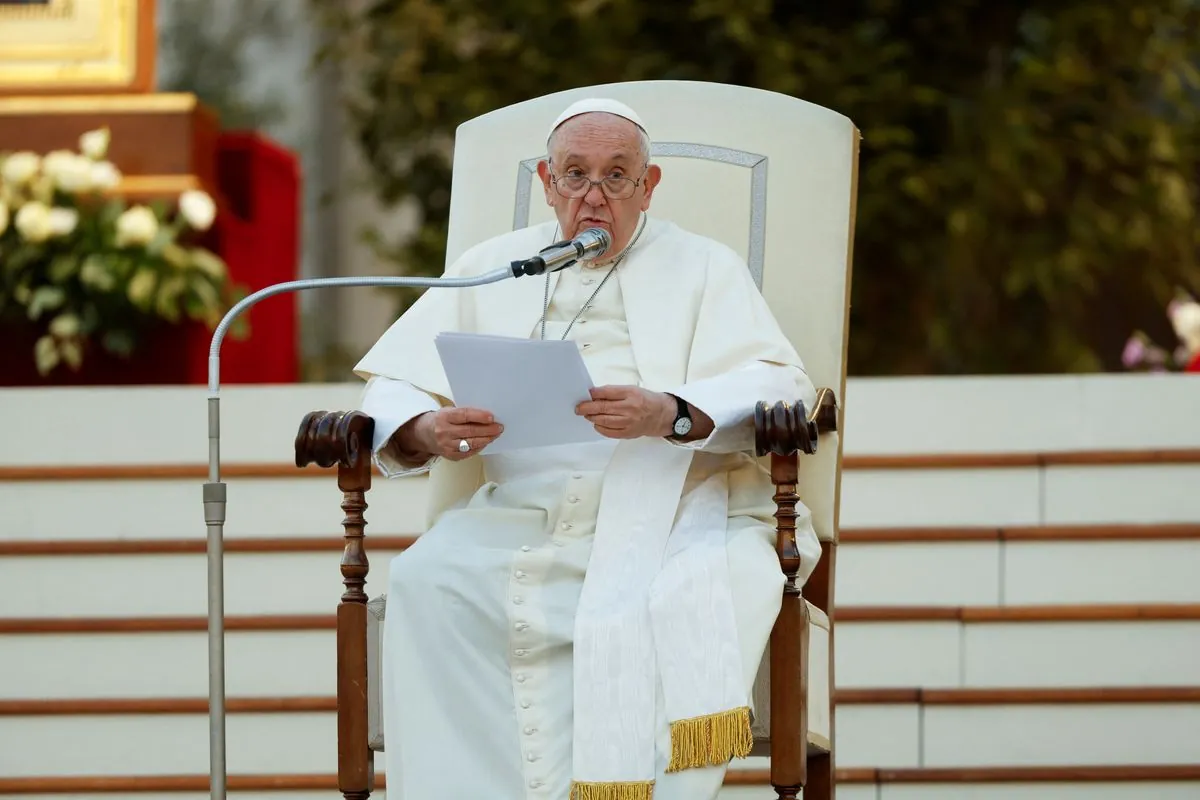Vatican Expels 10 from Peruvian Catholic Group Over Abuse Allegations
Pope Francis removes 10 members from a Peruvian Catholic movement following a Vatican investigation into various abuses. The decision comes after the group's founder was expelled for sexual misconduct.

In a significant move, Pope Francis has taken decisive action against the Sodalitium Christianae Vitae, a Catholic movement in Peru. The pontiff has expelled ten individuals, including a bishop, priests, and laypeople, following a Vatican investigation that revealed numerous abuses within the organization.
This decision comes approximately one month after the expulsion of the group's founder, Luis Figari, who was found to have committed sexual abuse against recruits. The Sodalitium Christianae Vitae, founded in 1971, has been under scrutiny for several years due to allegations of misconduct.
The Peruvian Bishops Conference made the announcement public by sharing a statement from the Vatican embassy on their website. The document provided a detailed account of the abuses uncovered during the investigation, which included physical violence, spiritual manipulation, and financial mismanagement.

Among the abuses listed were:
- Physical abuse, including instances of sadism and violence
- Sect-like manipulation of conscience
- Spiritual abuse
- Misuse of authority
- Financial misconduct in handling church funds
- Abuse in journalistic practices
The last point is believed to be directed at a journalist associated with Sodalitium who has used social media to attack critics of the movement.
This action by Pope Francis aligns with his broader efforts to address abuse within the Catholic Church. Since 2016, the Vatican has been investigating Sodalitium, and in 2018, a commissioner was appointed to oversee the group. The Pope has consistently emphasized transparency in dealing with Church scandals and has implemented new procedures for investigating abuse allegations.
The Sodalitium Christianae Vitae, known for its conservative theological positions and strict hierarchical structure, has had a significant presence in Peru and other countries such as Colombia and Italy. The group has operated schools and universities, and its members take vows of obedience, celibacy, and poverty.
Peru, with over 75% of its population identifying as Catholic, has seen several Church-related abuse scandals in recent years. The Vatican's decision to take such strong action against Sodalitium reflects the seriousness of the allegations and the Church's commitment to addressing misconduct within its ranks.
As the Catholic Church continues to grapple with abuse scandals worldwide, this move by Pope Francis sends a clear message about the consequences of misconduct and the importance of accountability within religious organizations.
"The investigation uncovered physical abuses, including instances of sadism and violence, sect-like abuses of conscience, spiritual abuse, abuses of authority, economic abuses in administering church money, and abuse in the exercise of the apostolate of journalism."
This development serves as a reminder of the ongoing challenges faced by religious institutions in maintaining ethical standards and protecting their members from abuse. It also highlights the critical role of investigative processes and decisive action in addressing such issues within the Church.


































